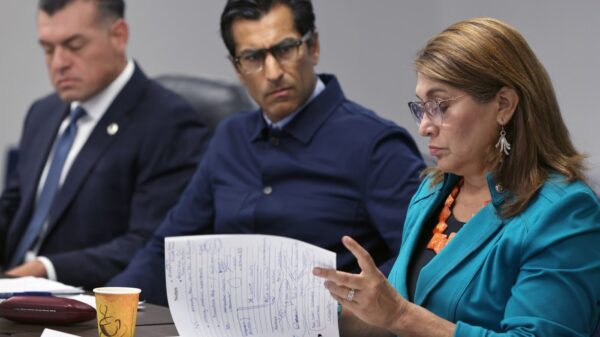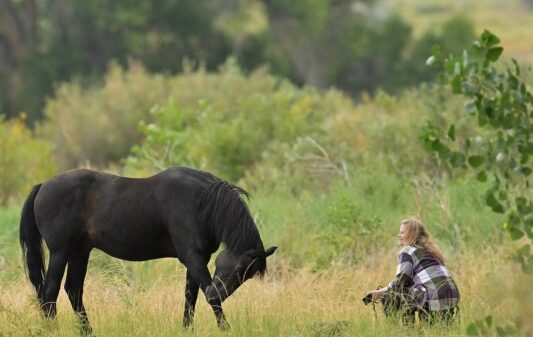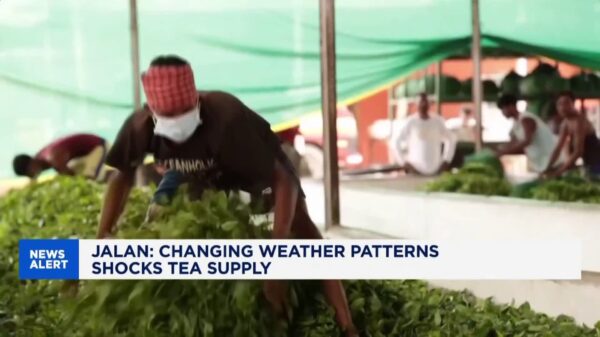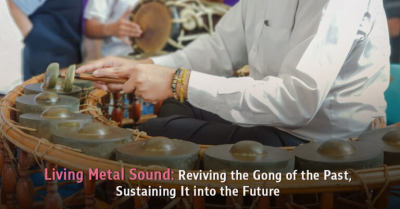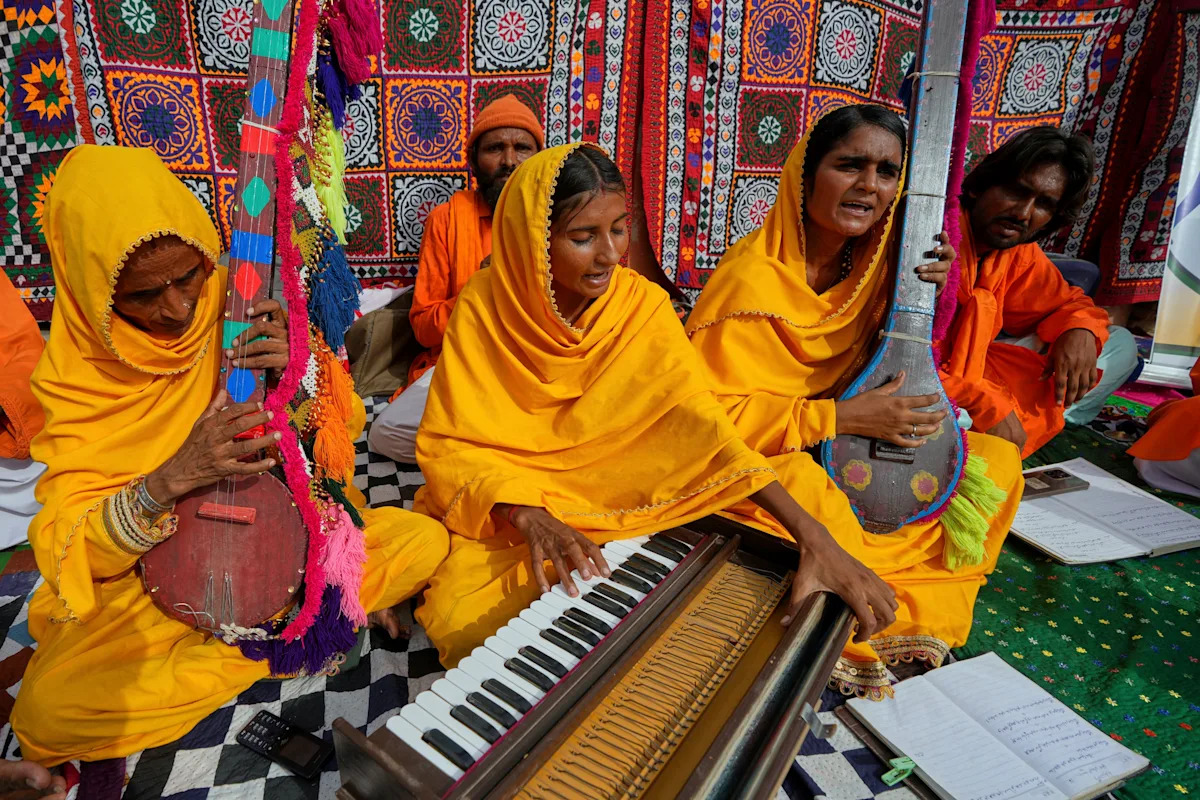In rural Pakistan, musicians are employing the power of song to raise awareness about the urgent issue of climate change. In Umerkot, folk artist Sham Bhai captivates villagers with melodies that highlight the harsh realities brought on by climatic shifts. Her poignant lyrics reflect the struggles faced by communities in Sindh, a province severely affected by devastating floods in recent years.
During a recent performance, Sham sang, “We are the people of the south. The winds seem to be blowing from the north. My heart is burned from seeing the collapsed houses in the rain.” These words resonate deeply in a region that recorded over 1,000 rain-related deaths in just a few months in 2022. The lingering damage is evident, with many homes and infrastructures still unrepaired, leaving residents vulnerable to future disasters.
Sham Bhai, an 18-year-old singer from Tando Allahyar, has been touring villages across Sindh for the past two years, using her music as a vehicle for education on climate adaptation. “When we give a message through song, it is easy to communicate to people because they understand it,” she explained. Singing in her native Sindhi language, she ensures that her message reaches those who may not speak Urdu, the national language of Pakistan.
The province of Sindh has been a battleground against climate change, with fluctuating weather patterns forcing farmers like Ghulam Mustafa Mahar to adapt their practices. “The monsoon season used to come on time, but now it starts late,” he noted, highlighting the unpredictability that has plagued agriculture for the past five years. Many farmers have shifted from crop cultivation to livestock to sustain their livelihoods.
With a literacy rate of only 38% in rural areas of Sindh, Sham’s songs serve as an essential tool for disseminating vital information. Through popular tunes, she captures her audience’s attention before transitioning into more serious themes. “People are acting on our advice; they are planting trees and making their houses strong to face climate change,” Sham reported.
Amid these efforts, women and children bear the brunt of climate-related hardships. Gender norms confine many to domestic work, limiting their ability to respond effectively during extreme weather events. One villager recounted the tragic loss of life during the 2022 floods, emphasizing the vulnerability of those trapped in their homes.
In the same vein, activist Urooj Fatima, known by her stage name Sindhi Chhokri, is using her platform to reach broader audiences through rap music. Following devastating floods in her village, she has turned her focus to climate change awareness, stating, “We can engage a lot of audiences through rap.”
Though hip-hop is not a mainstream genre in Pakistan, Urooj believes it is a powerful medium for storytelling about life and struggle. Her lyrics address the neglect faced by rural communities during disasters, calling out local and government inaction. “Where was the Balochistan government when the floods came? My pen thirsts for justice,” she raps, highlighting the need for accountability.
Urooj and her sister Khanzadi are actively campaigning in their communities, planting trees and advocating for government action on climate education. “This happens every year,” Urooj lamented, referring to the recurring floods that disrupt lives and livelihoods. She emphasizes the disproportionate impact of climate change on women and girls, who face additional challenges related to displacement and access to resources.
Despite facing backlash for her views, Urooj remains resolute in using her voice to challenge societal norms. “Rap is a powerful platform. If our rap reaches just a few people, then this is a very good achievement,” she asserted, determined to raise awareness and drive change.
As these artists continue to engage their communities through music, they highlight the pressing need for climate action and education in rural Pakistan. Their efforts not only entertain but also inform, empowering local populations to adapt to the realities of a changing climate.












